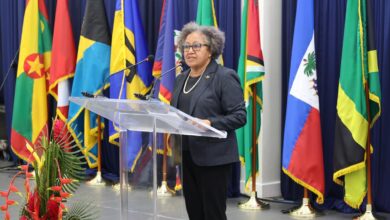GEORGETOWN, Guyana – The presidential elections in Venezuela indicate that the country, without the influence of former President Chávez’s extraordinary charisma and influence, remains essentially democratic in form and practice as it has tended to be since the end of the Jimenez dictatorship, with the polarization between the current two main parties now reaching extreme limits. While expecting that Chávez’s United Socialist Party of Venezuela (PSUV) would win the elections (Chávez won in 2009 with 54% of the vote), particularly as it held the seat of power, few observers would have expected that acting President Maduro would have been able to pull out the vote as his predecessor could.
The results suggest, in effect, that if the PSUV did not control the levers of power, it would most likely have lost the election, and this, no doubt increases the displeasure being expressed by Henrique Capriles, the leader of the New Era party (UNT). Maduro’s victory, with his 50.6 per cent also indicates, however, that were it not for the extensive assistance dedicated to the working class voters and the unemployed by Chávez, and his government’s effective control of the electoral machinery, it is unlikely that his party would have won the elections.





